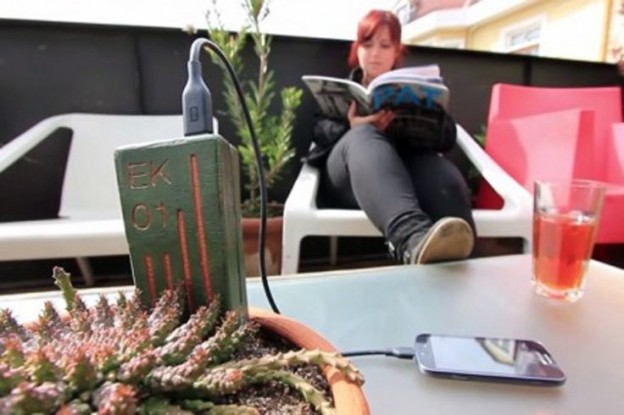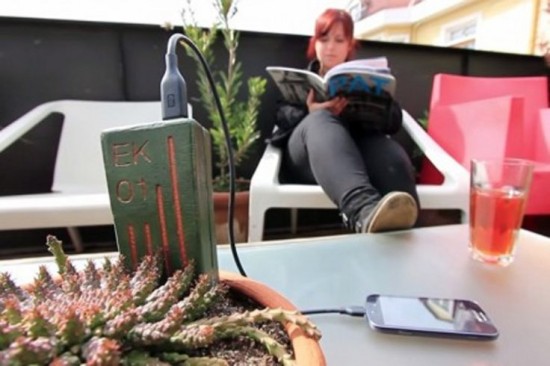Although the science behind it has been studied for a while, a group of researchers at Peru’s university of Technology and Engineering (UTEC) have come up with their own way of harnessing the power of Geobacters. Geobacters harness their energy from reducing ferric iron to Magnetite through oxidisation of organic compounds.
Research on Geobacters has been continuing across the world since 1987 and their potential power has been highly speculated over.
Basically, Nutrients in plants encounter microorganisms (Geobacters) in the soil and that process releases electrons which can then be captured by the electrodes dug into the soil. A grid of electrodes can then transfer the electrons collected into a battery.
The mechanism works like a circuit that generates 5 volts at 600 milliamps and connects to gadgets via a USB cable. During the process of photosynthesis, plants produce organic material that converts light energy into chemical energy. Around the roots, the micro-organisms are responsible for processing the energy that the plant uses for growth and to generate electrons as secondary products. The device captures these electrons that the plant doesn’t use – therefore the plant is not afffected – to generate the energy that the equipment needs. This power can charge a smartphone in around an hour and a half.
UTEC have partnered with global ad agency FCB to produce 10 prototypes and distribute them to houses in the rainforest village of Nuevo Saposoa located in Ucayali, a region noted for having Peru’s lowest rate of access to electricity.
Each unit contains an electrode grid buried in soil, in which a single plant grows. The grid connects to a battery, which powers a large LED lamp attached to an adjustable arm on the outside of the box and will provide 2 hours of light.
Peru is not alone in its advances. A dutch company called Plant-e is also harnessing power from living plants then using this power to charge cellphones, Wi-Fi hotspots, and now over 300 LED streetlights across two sites in The Netherlands.
I, for one, am very excited about this as it should encourage people to grow more plants at home for power which is of course better and cleaner than the forms we use currently. Envision plants pots with a usb slot already built in going into mass production sometime in the future, plant power power plant!

